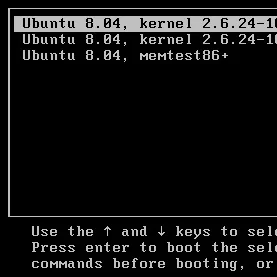Genode Aims To Produce A General Purpose OS

Last week I mentioned there was a new release of Genode (version 11.11) that brought new virtualization options support for GDB debugging, a new IPC implementation for Linux, improved support for hybrid Linux/Genode programs, L4Android integration, an updated tool-chain, and other enhancements. However, there wasn't a new Genode 11.11 Live operating system joining this release. In the past few days I've been in email contact with Norman Feske of Genode Labs about the matter.
Norman Feske has shared that they are aiming for a new operating system release next year and that they are striving to produce a general-purpose OS. "We are indeed planning a new edition, but not before February. Our plan is to give a glimpse of our vision to create a Genode-based general-purpose OS (at least from our perspective as developers). During the last year, we have made good progress but there are still some pieces missing that I'd like to include in the next live system."
No other details were given about their vision or potential features for this next release. Genode developers have already ported Gallium3D and other open-source Linux/BSD components to their platform.
For those wishing to play with Genode right now without building everything from scratch, there is an (outdated) Live OS image from last year.
If you're not familiar with Genode, below is the description of the project from their web-site.
Genode is a novel operating-system architecture that enables dynamic workload while retaining security and robustness. The fundamental difference of Genode compared to other OS architectures is its strict organizational structure, which allows the execution of sensitive applications with a trusted computing base of a few thousand lines of code beside high-complexity workload. With its organizational approach, the architecture facilitates a clean separation of policies and mechanisms, and enables the definition and application of system policies in a natural and distributed fashion. Genode's resource-management concept enables highly dynamic workload but still retains deterministic behaviour normally only found in statically configured systems. Learn more about the concepts of Genode...
The Genode OS framework is the reference implementation of this architecture. Its low source-code complexity of less than 10,000 lines of code not only eases thorough evaluation but principally enables the application of formal verification methods to the code base.
Genode's targeted application domains include high-security computing, dependable systems, automotive applications, and mobile devices. Even though the Genode OS framework mainly addresses specialized applications in the mid-term, we believe that the implemented mechanisms scale well towards the needs of a general-purpose operating system.
Genode is an offspring of the L4 community. Until spring 2008, it was conducted internally within the TU Dresden OS research group. The foundation of Genode Labs by the original creators of Genode marks the transition of Genode to a community project. At present, the implementation of the Genode OS framework is not complete but it is a solid starting point for a community effort. The direction where the project is heading...
5 Comments

